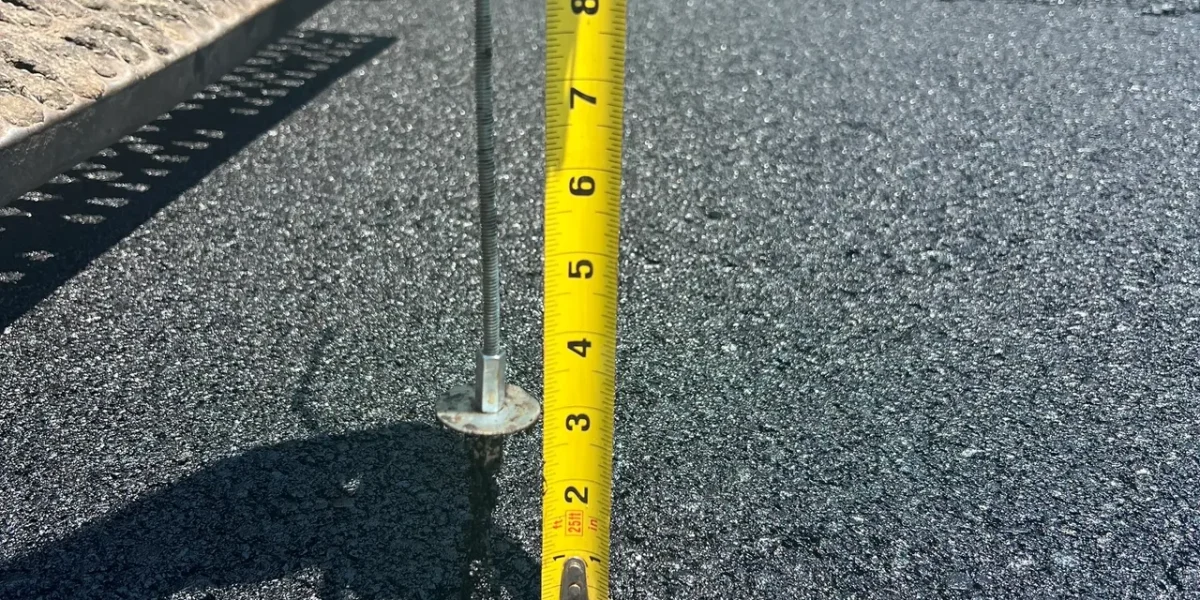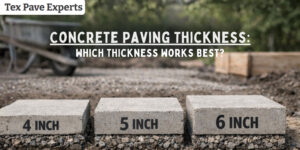At J&L Pavement West, we know that the longevity and durability of your pavement depend significantly on installing the correct depth of asphalt. Whether you’re paving a residential driveway, a commercial parking lot, or a heavily trafficked roadway, choosing the right asphalt thickness is crucial. Here’s a quick guide to help you understand why proper depth matters and the essential questions we ask during a site inspection to ensure we provide the best solution for your needs.
Why Asphalt Depth Matters
The depth of asphalt directly influences the pavement’s ability to withstand different types of traffic and environmental conditions. Too thin, and the pavement might crack and deteriorate quickly. Too thick, and you might be wasting resources and money. Striking the right balance is key to creating a durable, long-lasting surface.
Recommended Asphalt Depths
- Residential Driveways: Typically, a 2-3 inch depth is sufficient for most residential driveways. This thickness supports the weight of cars and light trucks while providing a smooth, durable surface.
- Commercial Parking Lots: For parking lots that see a mix of passenger vehicles and occasional delivery trucks, a depth of 4-6 inches is usually recommended. This extra thickness helps withstand the heavier loads and more frequent use.
- Roadways and High-Traffic Areas: For areas with heavy traffic, including buses and large trucks, a depth of 6-8 inches or more may be necessary. This ensures the pavement can endure constant, heavy loads without significant deterioration.
Key Questions During a Site Inspection
When we perform a site inspection at J&L Pavement West, we ask several critical questions to determine the best asphalt solution for your project:
1. What Type of Traffic Will the Pavement Experience?
Understanding whether the pavement will handle primarily residential vehicles, commercial traffic, or heavy-duty trucks helps us determine the appropriate depth and material composition.
2. What is the Current Condition of the Subgrade?
A thorough assessment of the existing ground conditions is vital. We check for issues like poor drainage, unstable soil, or previous pavement failures that could affect the new installation.
3. What Are the Environmental Conditions?
We consider the local climate and weather patterns, as temperature fluctuations and precipitation can impact asphalt performance and longevity.
4. What Are the Long-Term Use Expectations?
We discuss the client’s expectations for the pavement’s lifespan and future use. This helps us recommend solutions that balance initial costs with long-term durability.
5. Are There Any Budgetary Constraints?
We work with clients to find the most cost-effective solution that doesn’t compromise on quality. Understanding budget limitations helps us tailor our recommendations appropriately.
Selecting the right asphalt depth is crucial for ensuring your pavement stands the test of time. At J&L Pavement West, our comprehensive site inspections and tailored recommendations ensure you get a solution that meets your needs and budget. By asking the right questions and thoroughly assessing each site, we provide durable, long-lasting pavement solutions for every project.
For more information or to schedule a site inspection, contact J&L Pavement West today!




